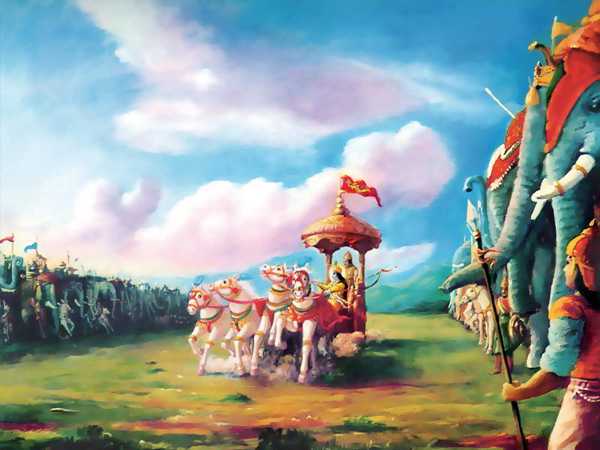Chapter 45

“Sanat-sujata said, ‘Sorrow, anger, covetousness, lust, ignorance,laziness, malice, self-importance, continuous desire of gain, affection,jealousy and evil speech,–these twelve, O monarch, are grave faults thatare destructive of men’s lives. Each of these, O monarch, wait foropportunities to seize mankind. Afflicted by them, men lose their sensesand commit sinful acts. He that is covetous, he that is fierce, he thatis harsh of speech, he that is garrulous, he that is given to nursinganger, he that is boastful,–these six of wicked disposition, onobtaining wealth, cannot treat others with courtesy. He that regardethsensual gratification as the end of life, he that is self-conceited, hethat boasteth having made a gift, he that never spendeth, he that is weakin mind, he that is given to self-admiration, and he that hateth his ownwife,–these seven are counted as wicked men of sinful habits.Righteousness, truth, asceticism, self-restraint, contentment, modesty,renunciation, love of others, gift, acquaintance with the scriptures,patience, and forgiveness,–these twelve are the practices of a Brahmana.He that doth not fall off from these twelve, may sway the entire earth.He that is endued with three, or two, or even one, of these, doth neverregard anything as his own to the exclusion of others. Self-restraint,renunciation, and knowledge,–in these reside emancipation. These are theattributes of Brahmanas endued with wisdom and regarding Brahman as thehighest of all objects of attainment. True or false, it is not laudablefor a Brahmana to speak ill of others; they that do this have hell fortheir abode. Mada hath eighteen faults which have not yet been enumeratedby me. They are ill-will towards others, throwing obstacles in the way ofvirtuous acts, detraction, falsehood in speech, lust, anger, dependence,speaking ill of others, finding out the faults of others for report,waste of wealth, quarrel, insolence, cruelty to living creatures, malice,ignorance, disregard of those that are worthy of regard, loss of thesenses of right and wrong, and always seeking to injure others. A wiseman, therefore, should not give way to mada, for the accompaniments ofmada are censurable. Friendship is said to possess six indications;firstly, friends delight in the prosperity of friends, and secondly, aredistressed at their adversity. If any one asketh for anything which isdear to his heart, but which should not be asked for, a true friendsurely giveth away even that. Fourthly, a true friend who is of arighteous disposition, when asked, can give away his very prosperity, hisbeloved sons, and even his own wife. Fifthly, a friend should not dwellin the house of a friend, on whom he may have bestowed everything, butshould enjoy what he earneth himself. Sixthly, a friend stoppeth not tosacrifice his own good (for his friend). The man of wealth who seeketh toacquire those good qualities, and who becometh charitable and righteousrestraineth his five senses from their respective objects. Such restraintof the senses is asceticism. When it groweth in degree, it is capable ofwinning regions of bliss hereafter (unlike Knowledge which leadeth tosuccess even here). They that have fallen off from patience (and areincapable, therefore, of attaining to Knowledge) acquire such asceticismin consequence of the purpose they entertain, viz., the attainment ofbliss in the high regions hereafter. In consequence of his ability tograsp that Truth (Brahman) from which sacrifices flow, the Yogin iscapable of performing sacrifices by the mind. Another performethsacrifices by Words (Yapa) and another by Work. Truth (Brahman) residesin him who knoweth Brahman as vested with attributes. It dwelleth morecompletely in him who knoweth Brahman as divested of attributes. Listennow to something else from me. This high and celebrated philosophy shouldbe taught (to disciples). All other systems are only a farrago of words.The whole of this (universe) is established in this Yoga-philosophy. Theythat are acquainted with it are not subjected to death. O king, onecannot, by Work, however well-accomplished, attain to Truth (Brahman).The man that is destitute of knowledge even if he poureth homa libationsor performeth sacrifices, can never, by Work, O king, attain toimmortality (emancipation). Nor doth he enjoy great happiness at the end.Restraining all the external senses and alone, one should seek Brahman.Giving up Work, one should not exert mentally. One should also (whilethus engaged) avoid experiencing joy at praise or anger at blame. OKshatriya, by conducting himself in this way according to the successivesteps indicated in the Vedas, one may, even here, attain to Brahman.This, O learned one, is all that I tell thee.'”




